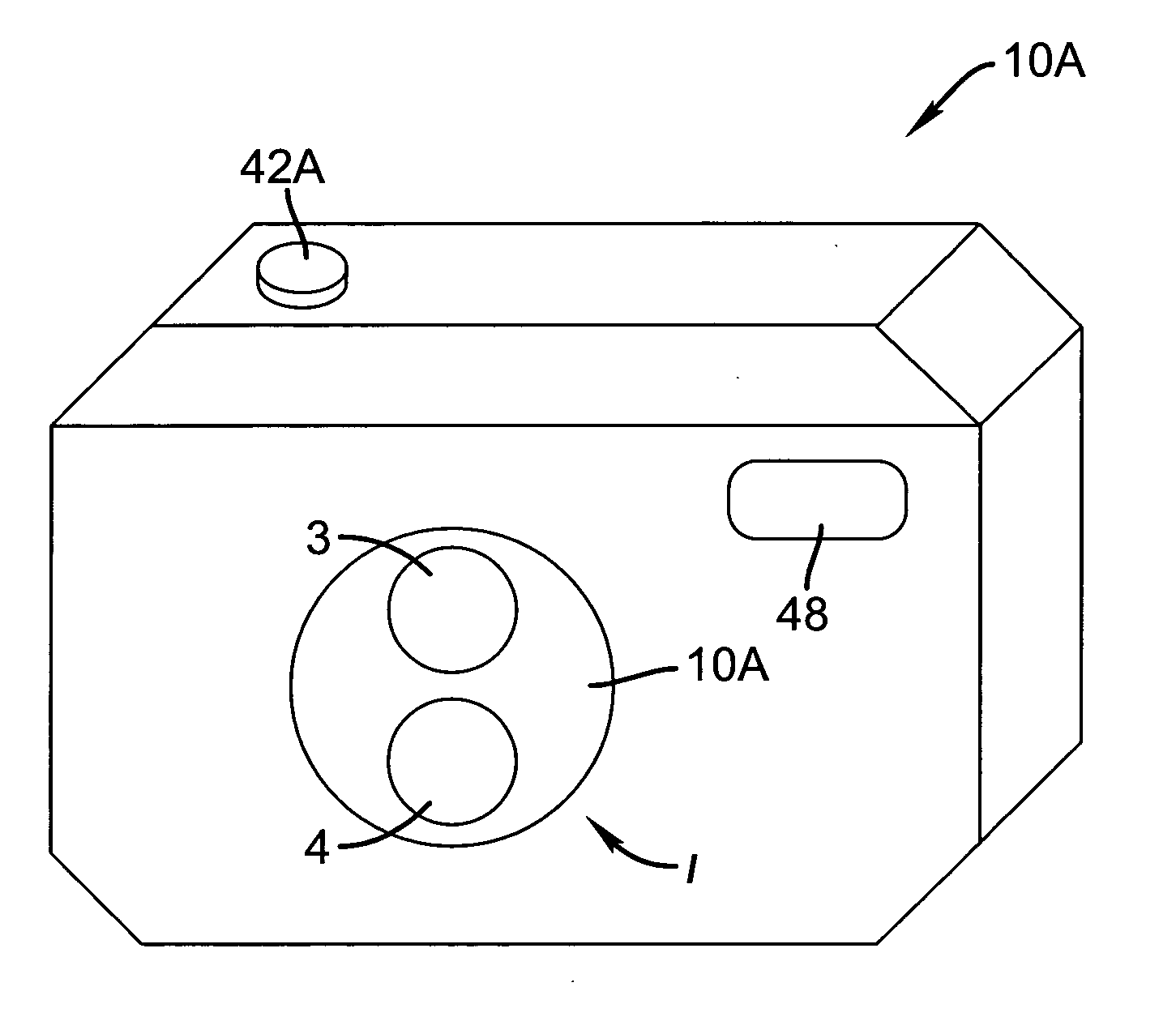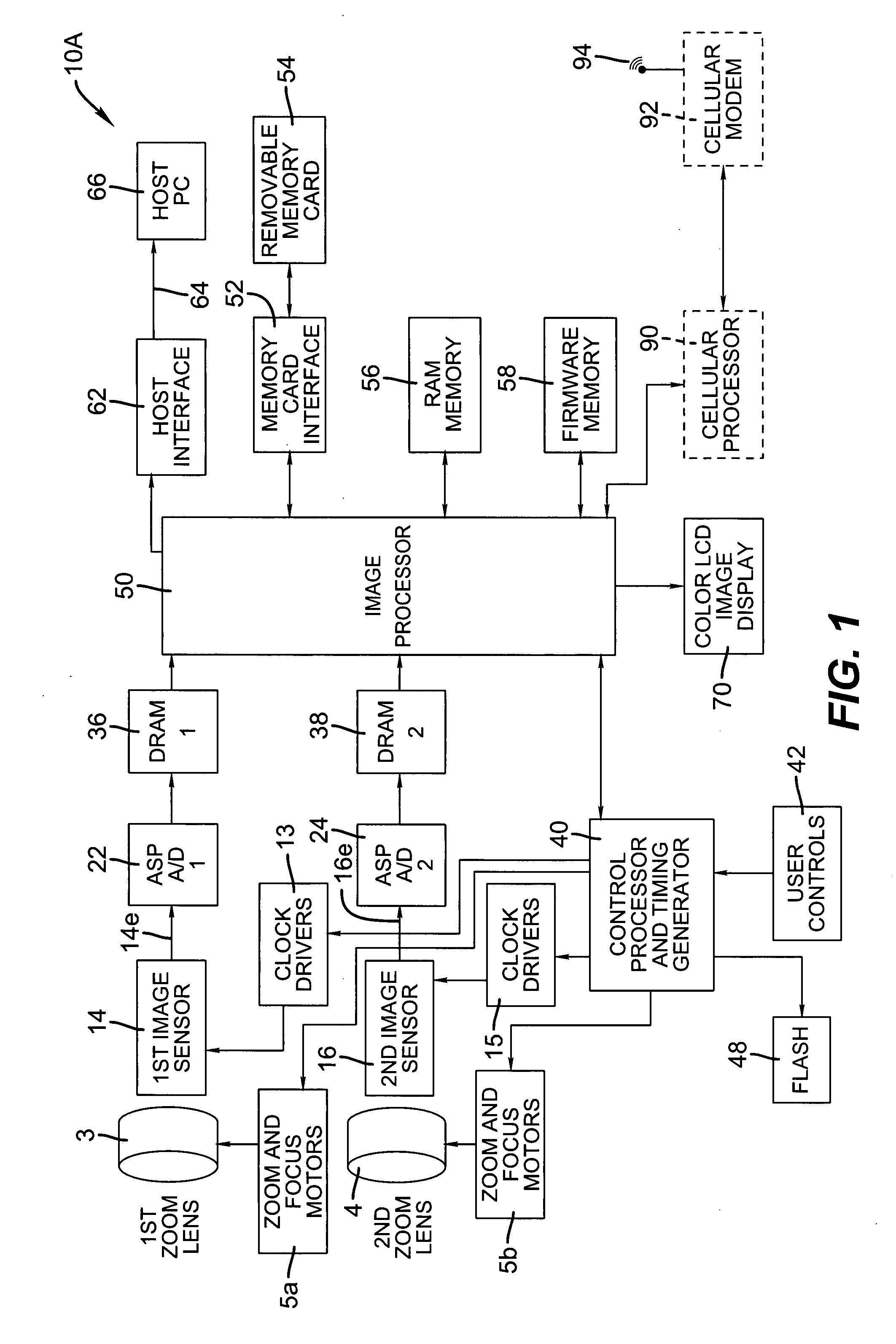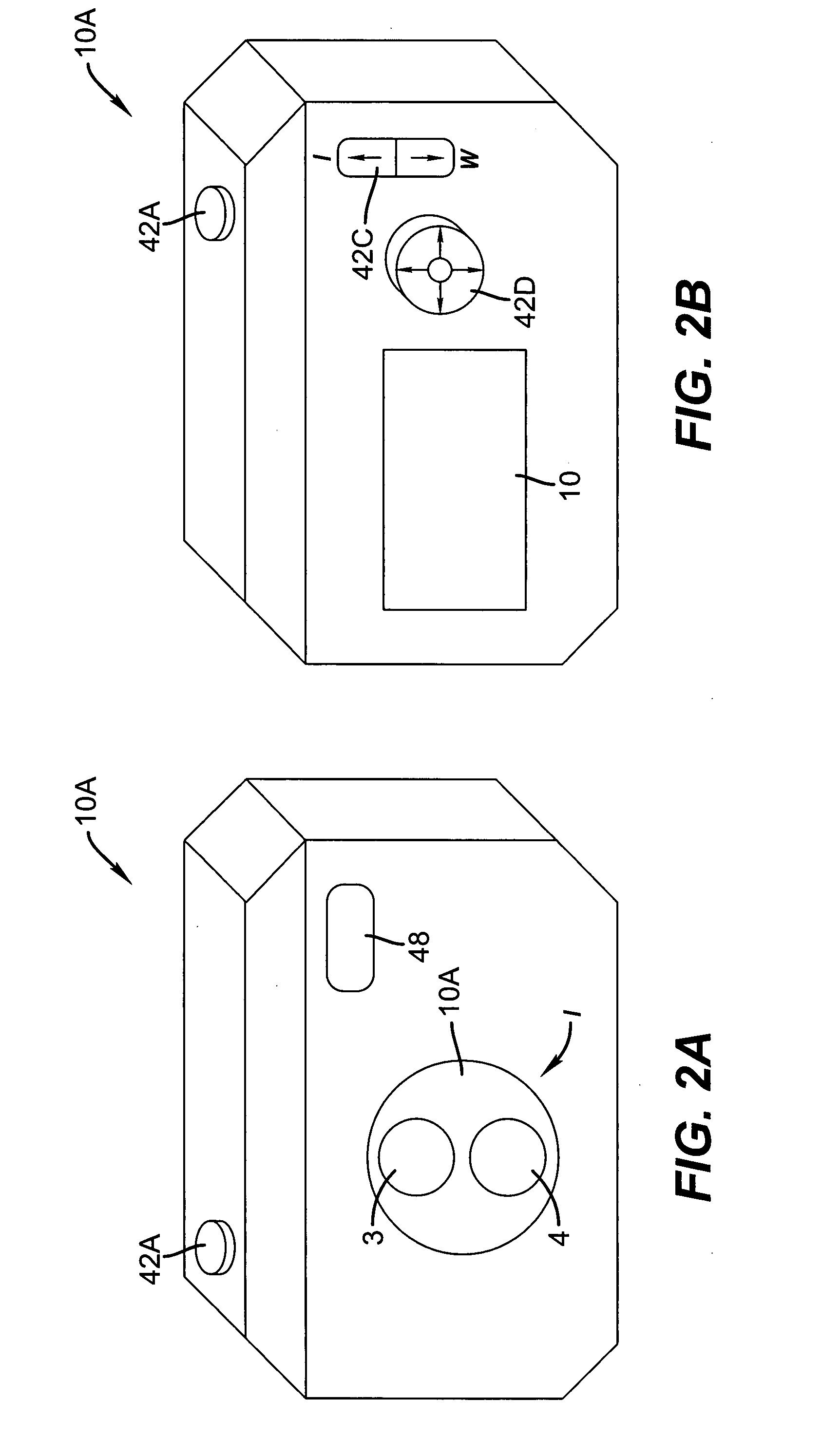Digital camera using multiple image sensors to provide improved temporal sampling
a digital camera and image sensor technology, applied in the field of digital cameras, can solve the problems of conflicting requirements between minimizing temporal aliasing, two image sensors cannot simultaneously capture motion images, and exposure time must be short enough to freeze the subject, etc., to achieve low noise control, high spatial resolution, and low spatial resolution
- Summary
- Abstract
- Description
- Claims
- Application Information
AI Technical Summary
Benefits of technology
Problems solved by technology
Method used
Image
Examples
Embodiment Construction
[0031]FIG. 1 depicts a block diagram of a first embodiment of a digital camera 10A according to the present invention. Digital camera 10A is a portable battery operated device, small enough to be easily handheld by a user when capturing and reviewing images. The digital camera 10A preferably produces both still digital images and motion digital image sequences (e.g. video clips) that are stored on a removable memory card 54. Alternatively, the digital camera may produce and store only motion digital image sequences.
[0032]The digital camera 10A includes two zoom lenses, each providing an image to a corresponding image sensor. The first zoom lens 3 is controlled by zoom and focus motors 5a, and provides an image to the first image sensor 14. The second zoom lens 4 is controlled by zoom and focus motors 5b, and provides an image to the second image sensor 16. However, the embodiment is not limited to a zoom lens and any suitable lens can be used. An adjustable aperture in each lens (no...
PUM
 Login to View More
Login to View More Abstract
Description
Claims
Application Information
 Login to View More
Login to View More - R&D
- Intellectual Property
- Life Sciences
- Materials
- Tech Scout
- Unparalleled Data Quality
- Higher Quality Content
- 60% Fewer Hallucinations
Browse by: Latest US Patents, China's latest patents, Technical Efficacy Thesaurus, Application Domain, Technology Topic, Popular Technical Reports.
© 2025 PatSnap. All rights reserved.Legal|Privacy policy|Modern Slavery Act Transparency Statement|Sitemap|About US| Contact US: help@patsnap.com



